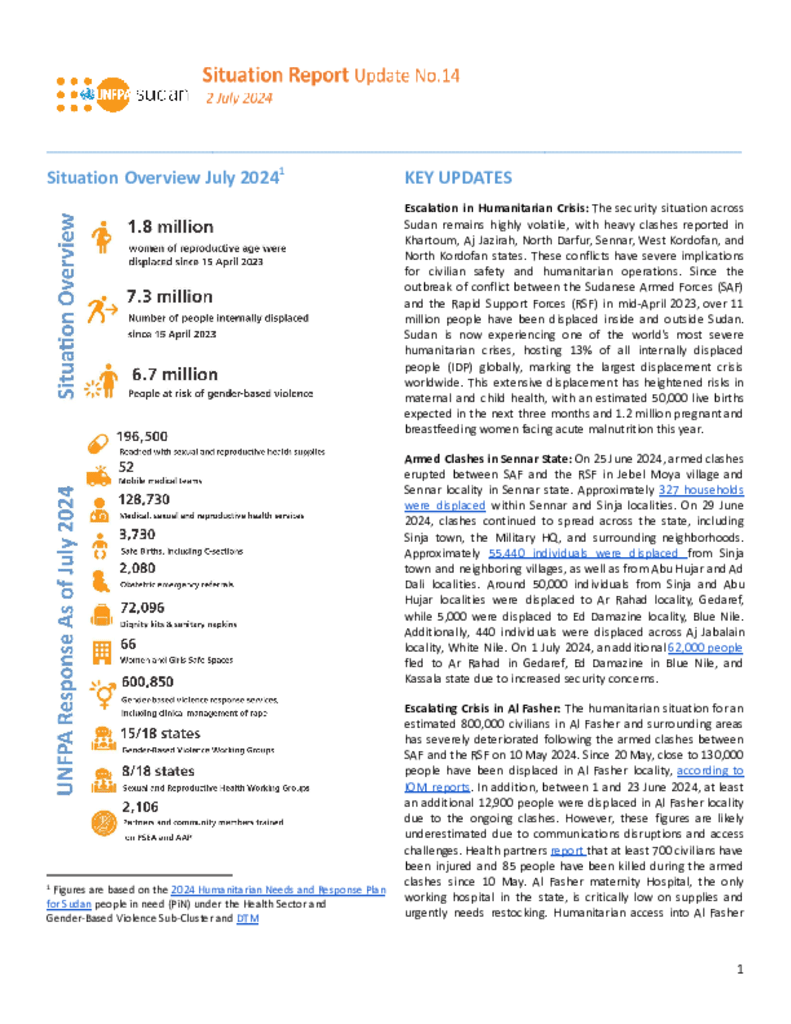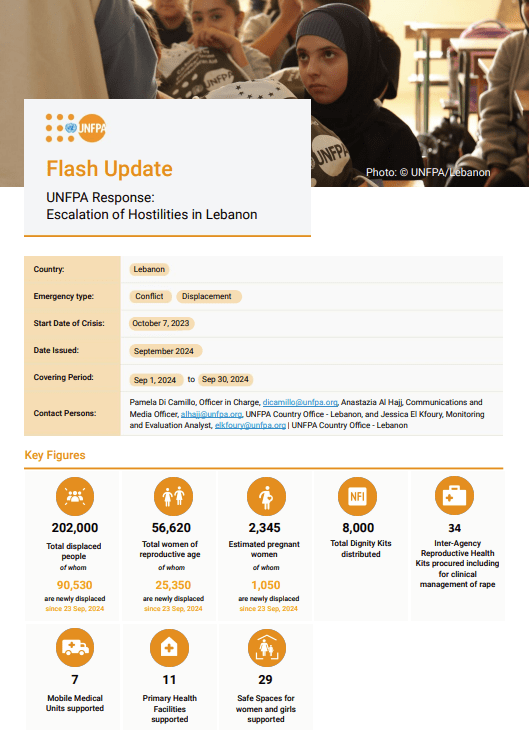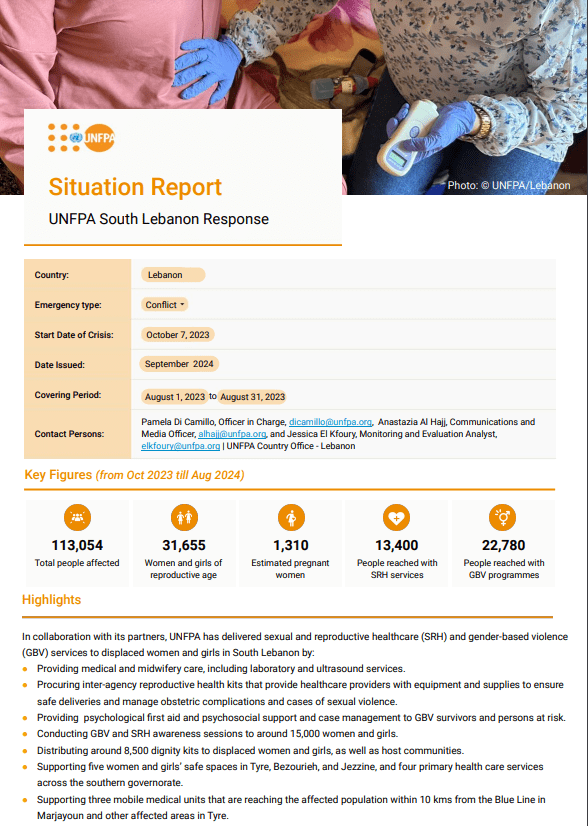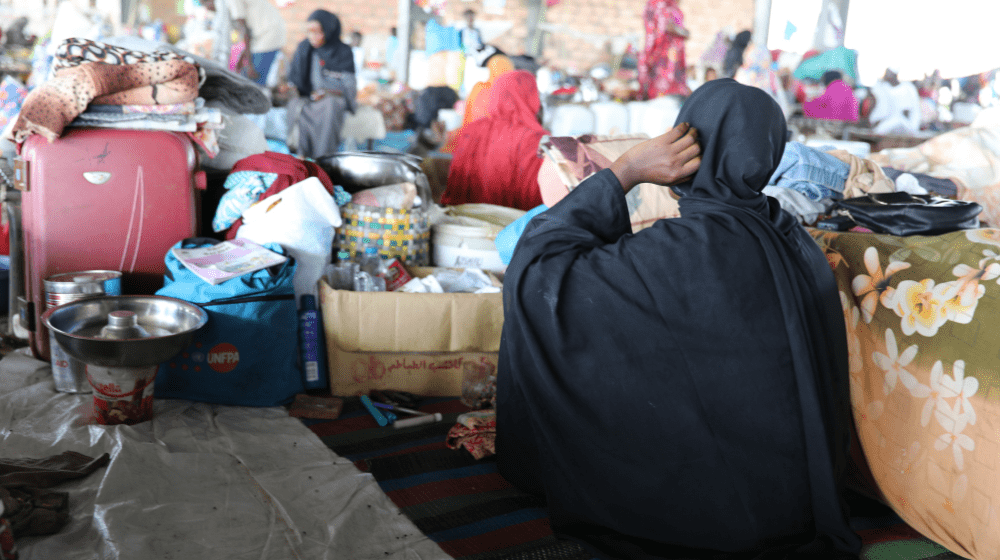
Sudan is experiencing a severe humanitarian crisis due to ongoing conflicts, with over 11 million people displaced and 25.6 million facing acute hunger. The clashes between the Sudanese Armed Forces and the Rapid Support Forces have significantly impacted civilian safety and humanitarian operations. The recent armed clashes in Sennar state resulted in the displacement of over 55,000 individuals, while the escalating crisis in Al Fasher has displaced close to 130,000 people. The situation is particularly concerning for pregnant women and mothers, with over 611,000 pregnant women facing acute hunger and 8.5 million people on the verge of famine. Allegations of sexual violence and trafficking of women and girls in Darfur, Kordofan, and Khartoum further compound the crisis. Immediate and unfettered humanitarian access across conflict lines and borders, as well as a ceasefire and steps towards lasting peace, are urgently needed to address the escalating humanitarian needs and prevent further deterioration.
To respond to the substantial needs in Sudan, UNFPA's activities focus on meeting the sexual and reproductive health (SRH) needs of over 17,000 individuals. Access to lifesaving care remains difficult due to electricity blackouts, lack of water, and limited care providers. UNFPA aims to address these challenges through various interventions, including roving teams of midwives, clean energy solutions, cross-border operations, and strengthening local capacity.They have distributed Inter-Agency Reproductive Health kits, provided Oxytocin and family planning tools, and supported Emergency Obstetric and Newborn Care (EmONC) facilities. UNFPA has also deployed roving community midwives and operationalized mobile health teams. They have supported community-based referral mechanisms, rehabilitated health facilities with solar-powered electric systems, and conducted capacity-building trainings for healthcare providers. UNFPA has co-chaired national and state SRH Working Group meetings and is working to update the map of SRH partners. Furthermore, they are conducting a Minimum Initial Service Package (MISP) assessment to evaluate the functionality of MISP components in the current emergency setting.
UNFPA has implemented various interventions to address GBV in Sudan. Dignity Kits have been distributed, and Women and Girls Safe Spaces (WGSS) have been established to provide essential GBV prevention and response services. Awareness-raising sessions and community dialogues on GBV have been conducted. Trainings have been organized to build the capacity of persons with disabilities, GBV service providers, and social workers on GBV core concepts, referral pathways, and disability inclusion. GBV coordination mechanisms have been established through GBV Working Groups, the GBV Sub-Cluster, and the Famine Prevention Plan. Technical guidance has been developed, including standard operating procedures and guidelines for GBV interventions. UNFPA has also worked to prevent sexual exploitation and abuse through awareness-raising sessions and training for service providers and community leaders. Access to GBV services is also challenging due to displacement and remote work requirements. UNFPA addresses this by investing in remote service provision, cross-state referrals, and mainstreaming GBV across sectors.
UNFPA seeks $82,930,028 in Sudan for 2024 to tackle gender-based violence, sexual and reproductive health, and refugee needs. Over a million vulnerable people will gain specialized services, protection networks, income-generating activities, and life-skills training.




